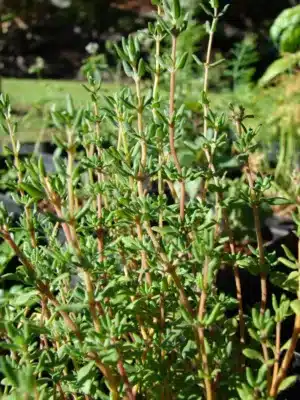Unlocking the Health Benefits and Culinary Magic of Thyme: A Comprehensive Guide
In India thyme is known by vernacular names such as Banajwain in Hindi, Marizha, Masho and Rangsbur in Punjabi and Hasha in Urdu. BUT COULD NOT FIND THE NAME IN TAMIL
Table of Contents
Thyme Origin
Thyme is indeed native to Southern Europe, including regions from Spain to Italy. Its cultivation extends beyond Europe to various parts of the world, including Australia, North Asia, North Africa, Canada, and the USA.
In India, it is cultivated in specific regions with suitable climatic conditions. The Western temperate Himalayas and the Nilgiris are examples of such regions where cultivation takes place. These areas provide the right combination of temperature, sunlight, and soil conditions for Banajwain to thrive.
It’s always important to consider the specific climate and soil requirements when cultivating herbs like thyme, and local variations in cultivation practices may exist based on regional conditions. If you’re interested in cultivating thyme in a specific location, consulting with local agricultural experts or horticulturists would be beneficial for tailored advice.

Thyme Nutrients
It is a herb that not only adds flavor to dishes but also contains a variety of nutrients. While the exact nutrient content can vary depending on factors like soil conditions and cultivation methods, thyme generally provides the following:
Vitamins: It is a good source of several vitamins, including vitamin C, vitamin A, and some of the B vitamins (such as B6).
Minerals: It contains minerals like iron, manganese, and calcium.
Antioxidants: It contains compounds with antioxidant properties, such as thymol, carvacrol, and rosmarinic acid.
Volatile Oils: It is also known for its essential oils, which contribute to its aromatic flavor. Oil, extracted from the leaves, is often used in aromatherapy and has potential health benefits.
Fiber: Like many herbs, thyme contains a small amount of dietary fiber.
It’s worth noting that while thyme can contribute some essential nutrients to your diet, it’s typically used in relatively small amounts in cooking, so its nutritional impact per serving may be limited. As with any herb or spice, incorporating a variety of herbs and spices into your diet can contribute to a diverse range of nutrients and flavors.
Thyme Health Benefits
Here are some potential health benefits of thyme:
Rich in Antioxidants: It contains antioxidants like thymol and rosmarinic acid, which help neutralize free radicals in the body and support overall health.
Anti-Inflammatory Properties: It has also anti-inflammatory compounds that may help reduce inflammation and alleviate conditions like arthritis.
Boosts Immune System: The vitamin C content can boost the immune system, helping the body defend against infections and illnesses.
Respiratory Health: It has been traditionally used to ease respiratory issues. It may help relieve symptoms of coughs, bronchitis, and asthma.
Digestive Aid: It may support digestion by promoting the production of digestive enzymes and relieving indigestion.
Heart Health: Certain compounds in may contribute to heart health by helping to lower blood pressure and cholesterol levels.
Antimicrobial Properties: It has natural antimicrobial properties that may help combat certain bacteria and fungi.
Vitamin and Mineral Content: It is a good source of vitamins like A and B6, as well as minerals such as iron, manganese, and calcium.
It’s important to note that while thyme can be a flavorful addition to meals and may offer health benefits, it should not replace professional medical advice or treatment. As with any herb or supplement, it’s best to incorporate it into a balanced diet for overall well-being.

